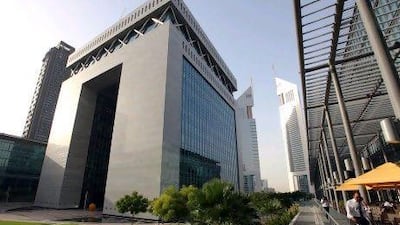Abdullah Mohammed Saleh has been made the new governor of the Dubai International Financial Centre, the emirate's banking and financial services hub.
The appointment was announced in a resolution by Sheikh Mohammed bin Rashid, Vice President of the UAE and Ruler of Dubai, to take effect immediately.
Mr Saleh is the chairman of the Dubai Financial Services Authority, the DIFC regulator.
He is the former managing director and chairman of National Bank of Dubai, which is now known as Emirates NBD and is the largest banking entity in the Middle East. Emirates NBD was formed by the merger of National Bank of Dubai and Emirates Bank International in 2007. Mr Saleh is a former adviser on financial matters to the late ruler of Dubai, Sheikh Rashid bin Saeed.
He replaces Ahmed Humaid Al Tayer at the DIFC. Mr Al Tayer was appointed governor in late 2009. Las month Mr Al Tayer was replaced as chairman of Emirates NBD.
It also emerged Investment Corporation of Dubai (ICD), the holding company owned by the emirate's Government, is in talks with the DIFC over sales of assets bought in the years preceding the financial crisis, as it seeks a way out of its debt problems.
DIFC Investments, which invests and owns properties on behalf of the DIFC, has been in discussions with ICD to develop a "proper" plan to sell off its portfolio of assets, said Abdulla Mohammed Al Awar, the chief executive of the DIFC Authority.
"DIFC Investments will continue to manage the portfolio. However, there's a focus more on managing the various costs, and … setting up a proper divestment plan in terms of non-core investments," he said.
DIFC Investments borrowed heavily in the years preceding the financial crisis, but has since made efforts to sell a number of its high-profile acquisitions.
The most pressing concern is a US$1.25 billion (Dh4.59bn) sukuk which matures next June 13. Its total debts also include $1bn in loans from the Dubai Government and $714 million of bank debt.
DIFC Investments had $304.7m of cash on its balance sheet at the end of last year, according to the group's annual report last month. The report revealed the group made a loss of $272m that year, narrowing its losses 51.6 per cent from 2009.
DIFC Investments had pledged to reduce its assets by about $1bn as part of a restructuring of its liabilities. Tommy Trask, a financial analyst at Standard and Poor's, said that process was still incomplete. "They're still in the process of trying to realise which assets they'll be able to sell," he said. A 2.2 per cent holding in Germany's Deutsche Bank, bought in the summer of 2007 for about $1.8bn, has been sold since then. Villa Moda, the Kuwaiti luxury department store, was sold in 2009.
"This could be one way of helping out DIFC Investments," said Zafar Nazim, an emerging markets credit analyst at JP Morgan. "I think they're trying to do anything … needed to be able to pay the sukuk maturing next year."
fkane@thenational.ae

